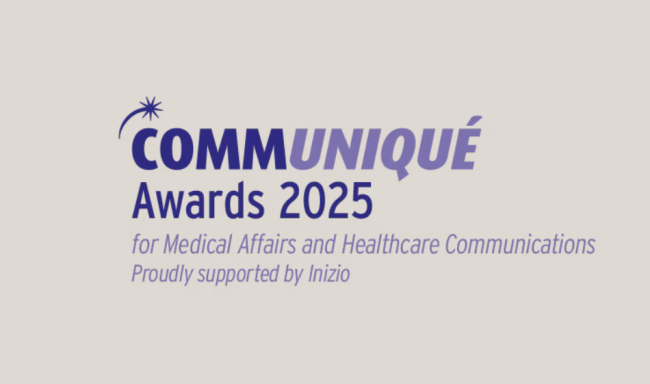A letter from Prilenia with an update on the PROOF-HD clinical trial.
Dear Huntington’s Disease Community,
We are reaching out to provide an important update about the topline results from our Phase 3 study, PROOF-HD. For those who aren’t familiar with the study, the objective was to evaluate the efficacy and safety of the investigational drug pridopidine (a 45 mg oral capsule taken twice daily) in patients with early-stage manifest Huntington's disease (HD).
The study did not meet its primary endpoint, change from baseline compared to placebo at 65 weeks, as measured by the Unified Huntington Disease Rating Scale-Total Functional Capacity score (TFC) or the key secondary endpoint measured by the Composite Unified Huntington’s Disease Rating Scale (cUHDRS).
However, there are encouraging signals based on our initial review of the data. Analyses that excluded patients on neuroleptics (also known as antipsychotics) and chorea medications showed meaningful clinical benefits of pridopidine as compared to placebo on disease progression, motor, and cognitive outcome measures. Because the results could be different for patients taking these neuroleptic and chorea medications, we designed the study to look at these data sets (pre-specified).
Pridopidine was well-tolerated with no serious treatment-related adverse events, with a safety profile similar to placebo and consistent with previous clinical studies. We have just started analyzing the trial data, and we plan to update the HD community after we complete our full analysis, including presentations at future advocacy and medical conferences.
To learn more about the results of the PROOF-HD study, please read our press release here.
Our commitment to the HD community continues and we are examining potential ways to advance pridopidine in HD. We are working closely with patient advocacy organizations to share these preliminary PROOF-HD results with you, including two webinars planned for early May so the HD community can learn more and ask questions.
We would like to thank all study participants and their families, along with the broader HD community, for their collaboration on the PROOF-HD study. We appreciate your dedication and commitment to the study and are confident that the results will help advance HD research.
Sincerely,
Seth Rotberg, Senior Manager of Patient Advocacy and Engagement
On behalf of the team at Prilenia
Cath Stanley, Chief Executive of the Huntington's Disease Association said:
"Whilst it's clearly disappointing the trial did not meet its primary endpoint, there is much to be encouraged by the results. The product clearly had some positive effects on cognitive impairment where neuroleptic (antipsychotic) medication wasn't being used. This provides valuable insight into further trials. There will be a webinar on this in May, we will share more details when we know when it is."
Questions
Who can I reach out to for help or if I have any questions?
- For study participants and their family members, we encourage you to reach out to your study physician for more information about next steps. For members of the larger HD community, please reach out to your local HD care center or patient advocacy organization.
What is pridopidine?
- Pridopidine (45 mg twice daily) is an oral, highly selective and potent investigational S1R agonist that has exhibited a safety and tolerability profile similar to placebo in clinical studies to date.The S1R protein is highly expressed in the brain and spinal cord where it regulates several key processes that are commonly impaired in various neurodegenerative diseases. Activation of the
S1R by pridopidine may lead to neuroprotective effects. It is an investigational drug, and its safety and efficacy have not been determined by the FDA or EMA.
What were the primary and key secondary endpoints of the study?
- The primary endpoint of the PROOF-HD study was a change from baseline in the UHDRS-TFC score at 65 weeks. TFC measures a person's ability to maintain function in different domains such as: occupation, finances, domestic chores, activities of daily living, and care level.
The key secondary endpoint was measured by the Composite Unified Huntington’s Disease Rating Scale (cUHDRS). This includes a responder analysis (the proportion of participants with no worsening [change ≥0 point]) in TFC, motor cognition, and quality of life.
What does it mean that you didn’t meet your primary or key secondary endpoints?
- A clinical trial’s primary endpoint is the specific end goal of an investigational drug that a company hopes to achieve. Key secondary endpoints help a company look at other potential effects of an investigational drug. Due to this, we will need to do further analyses of the full PROOF-HD dataset.
What are neuroleptics?
- Neuroleptic medications are also known as antipsychotics. These are different from antidepressant medications.
According to “HDSA’s A Physician Guide to the Management of Huntington’s Disease (Third Edition),” neuroleptics are used for psychosis and sometimes for irritability or for chorea suppression.
When will the full results from PROOF-HD be shared?
- Prilenia will complete a full evaluation of the data from PROOF-HD and share the results at future patient advocacy and medical conferences.
What will happen to participants who were enrolled in the open label extension (OLE)?
- Almost all participants (98 percent) that were eligible elected to continue in the ongoing OLE study of PROOF-HD.
Prilenia intends to continue providing patients with access to pridopidine as part of the current PROOF-HD Open Label Extension or via Expanded Access programs.




